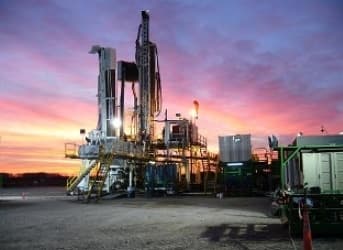Argentina has been hailed as a promising frontier for the development of shale gas outside of the United States, and billions of dollars in investment from international oil companies have begun to pour in. But clouds of uncertainty have begun to form over the country’s vast, centrally located shale gas basin, the Vaca Muerta.
Last week, an Argentine appellate court ordered a criminal investigation into a deal between Chevron and YPF, the country’s government-owned oil company. At issue is whether President Cristina Fernandez de Kirchner abused her power by issuing tax incentives by decree on the eve of a major deal between the two oil companies in July 2013.
Kirchner’s decree allowed companies that invest more than $1 billion in the country over a five-year period to export up to 20 percent of their production without paying any export taxes. The day after the decree was issued, Chevron announced that it would invest $1.24 billion in a joint venture with YPF. The government hailed the policies as paving the way for Argentina to attract investment in its shale sector.
Related Article: Mexico Opens up Shale and Deepwater – Who Will Get There First?
But now an appellate court has ruled in favor of an investigation into the matter, in response to a suit filed by the Nueva Izquierda (New Left) political party alleging abuse of power, breach of duty and attempted environmental damage. Nueva Izquierda maintains that the decree was specifically meant to benefit Chevron, which, if true, could be a violation of the law.
Jorge Capitanich, the chief of the country’s cabinet of ministers, has dismissed the suit as politically motivated, and blamed what he called “external agents that hope to affect the country’s strategic interests with these court actions.” He also criticized environmentalists for wanting a pre-industrial society without cars or planes.
But Kirchner’s troubles don’t stop there. Bloomberg reported on May 16 that three key governors in Argentina are fighting a plan to federalize the oil and gas permitting process. The governors of Neuquen, Mendoza and Chubut – the provinces that are home to the Vaca Muerta shale – have agreed to jointly oppose YPF’s push to take away their permitting authority.
Kirchner’s late husband, former President Nestor Kirchner, signed a law back in 2004 that granted permitting and auctioning authority to the provinces. But now with heightened interest in the Vaca Muerta for shale gas, YPF wants a streamlined federal licensing system that would make exploration easier.
On April 30, the government of Neuquen, the epicenter of the Vaca Muerta riches, held a road show in Houston to attract interest from major international oil and gas companies. “For unconventionals, the players will be the majors,” Neuquen Energy Minister Guillermo Coco said at the event, according to Reuters. “Chevron, Exxon, Shell have shown interest in Vaca Muerta. They will compete for sure,” he added.
But YPF’s CEO Miguel Galuccio is pushing for a federal jurisdiction, and opposed the Neuquen delegation going to Houston.
The spat is causing some uncertainty over the nascent Argentine shale sector and is weighing on YPF’s share price, which is down 9.5 percent since the beginning of the year.
Related Article: Shale Revolution Spreads to the South
Still, Kirchner badly wants to jump start shale development, and has shown a determination to repair her government’s image to international investors after she nationalized YPF in 2012.
She accused the then-Spanish company of failing to invest enough in oil production, but agreed to compensate the company and its shareholders $5 billion after taking over 51 percent of the company.
Now majority-owned by the Argentine government, YPF is the largest operator in the basin, owning 37 percent of concessions. That means that the federal government has a huge stake in the outcome of YPF’s future oil and gas production. After passing the incentive package last year, Kirchner succeeded in attracting international capital and technology when Chevron agreed to commit billions to the Vaca Muerta.
If the latest hurdles can be overcome, the shale play could turn out to be significant. The Vaca Muerta holds an estimated 16.2 billion barrels of technically recoverable oil and 308 trillion cubic feet of natural gas.
By Nick Cunningham of Oilprice.com


















